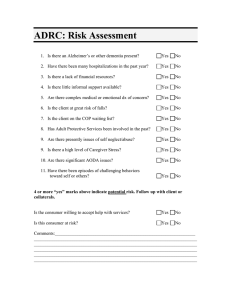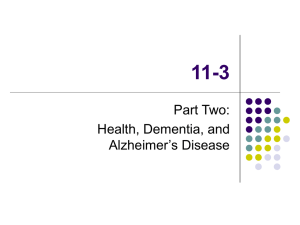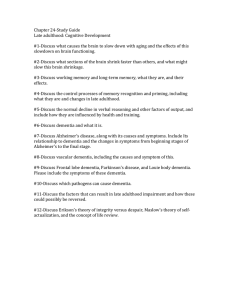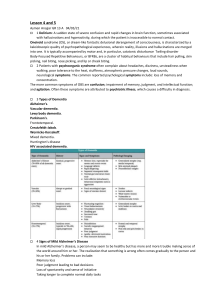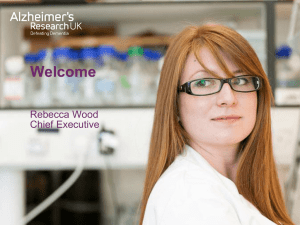Building Your Action Team
advertisement
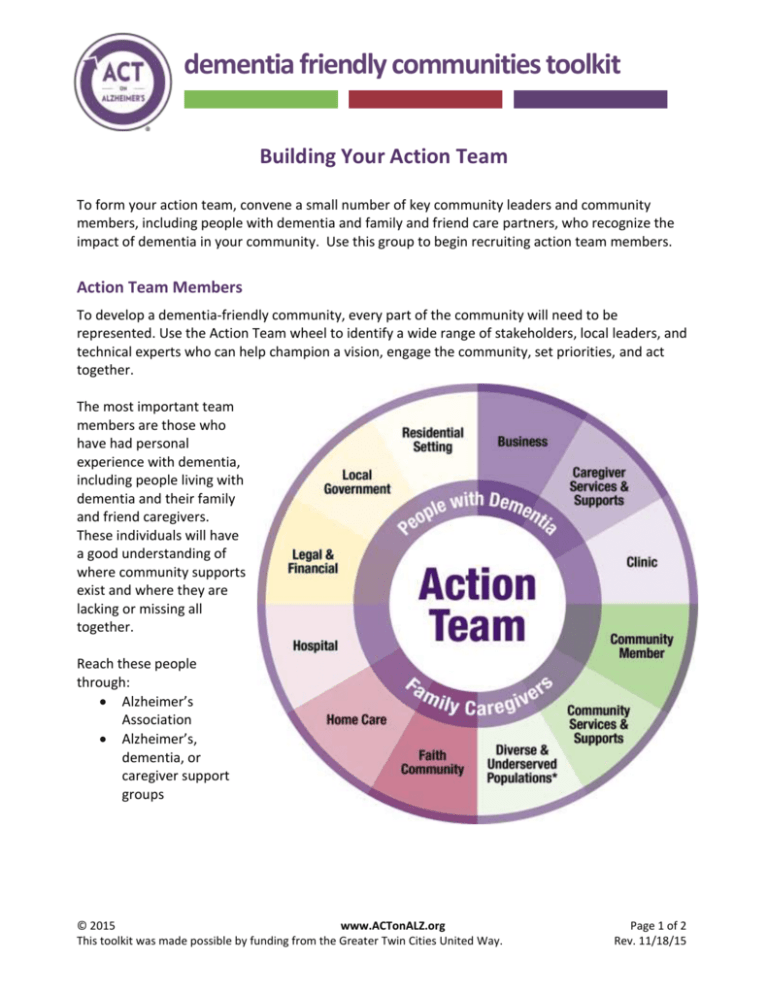
dementia friendly communities toolkit Building Your Action Team To form your action team, convene a small number of key community leaders and community members, including people with dementia and family and friend care partners, who recognize the impact of dementia in your community. Use this group to begin recruiting action team members. Action Team Members To develop a dementia-friendly community, every part of the community will need to be represented. Use the Action Team wheel to identify a wide range of stakeholders, local leaders, and technical experts who can help champion a vision, engage the community, set priorities, and act together. The most important team members are those who have had personal experience with dementia, including people living with dementia and their family and friend caregivers. These individuals will have a good understanding of where community supports exist and where they are lacking or missing all together. Reach these people through: Alzheimer’s Association Alzheimer’s, dementia, or caregiver support groups © 2015 www.ACTonALZ.org This toolkit was made possible by funding from the Greater Twin Cities United Way. Page 1 of 2 Rev. 11/18/15 Other action team member areas include: Business: Banks, retail, restaurants, hair salons, dentists, vision and hearing professionals, chiropractors, pharmacies, insurance agents, grocery stores, medical supplies and equipment, etc. Caregiver Services and Supports: Adult day, support groups, respite care providers Community Services and Supports: Alzheimer’s Association, Area Agency on Aging, wellness programs (e.g., fitness centers, YMCA/YWCA), meaningful engagement programs/activities (e.g., creative arts, music, group programs), services that support independence at home (e.g., chore, home safety, meal delivery), senior centers, community health workers Community Member: Educational institutions (e.g., K-12 schools, colleges, universities), service clubs (e.g., Kiwanis; Knights of Columbus; Lions; Rotary International; Fraternal Order of Eagles; Optimist Club; Elk Club; veteran service organizations), volunteer service organizations (e.g., senior companions), museums, libraries, youth groups, food shelf *Diverse and Underserved Populations: Members of communities that are marginalized and that experience inequities because of race, ethnicity, culture, language, sexual orientation, gender identity, mental illness, intellectual or physical abilities, hearing or other sensory differences, or economic status. Faith Community: Ministerial associations, churches, synagogues, mosques, parish nurses, congregational groups, etc. Health Care: Clinics, home care agencies, hospitals Legal and Financial: Financial, legal, and advanced care planning professionals Local Government: Adult protection, city council members, city inspectors, city planners, emergency responders, human services staff, police/sheriff, and public health staff Residential Setting: Independent living communities, assisted living residences, nursing homes © 2015 www.ACTonALZ.org This toolkit was made possible by funding from the Greater Twin Cities United Way. Page 2 of 2 Rev. 11/18/15
